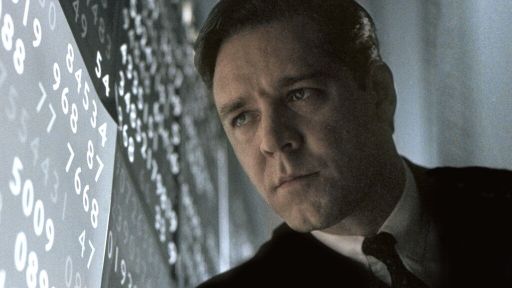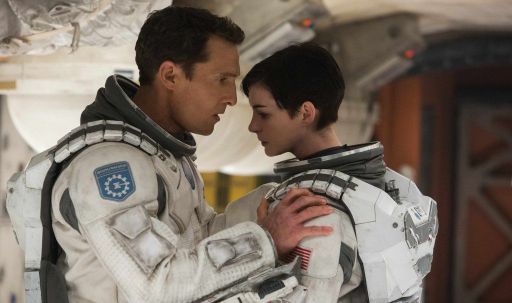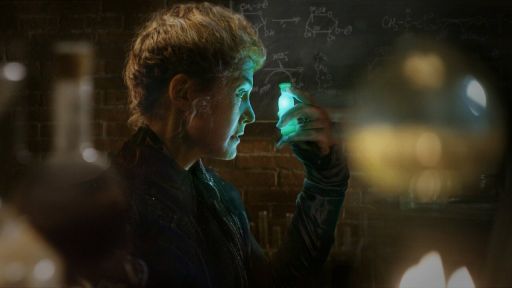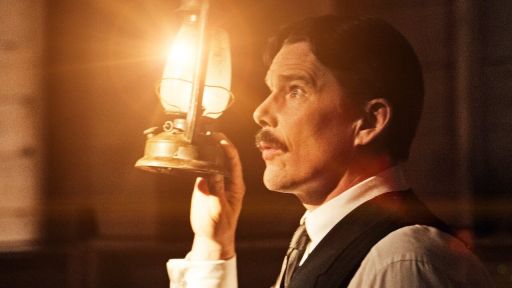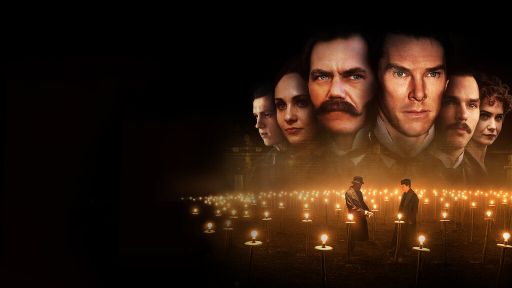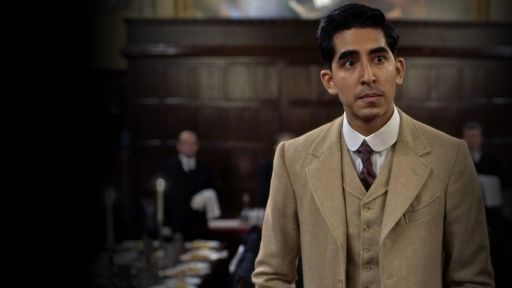The epic biographical thriller movie “Oppenheimer” was written and produced by Christopher Nolan. It is based on Kai Bird and Martin J. Sherwin’s biography of J. Robert Oppenheimer, “American Prometheus,” published in 2005. Cillian Murphy plays the title role in the ensemble cast, with Emily Blunt, Matt Damon, Robert Downey Jr., Florence Pugh, and Josh Hartnett playing supporting roles.
J. Robert Oppenheimer, a theoretical physicist who was instrumental in creating the first nuclear bomb, is the subject of the military drama film. If you liked how the film explored the ethical and philosophical arguments brought up by Oppenheimer’s involvement in the development of the atomic bomb and how it affected his life. So you must be looking for more films like that to watch. In that case, we’ve chosen some flicks that you’ll also like. The majority of these films, including “Oppenheimer,” are available on Netflix, Hulu, and Amazon Prime.
A Beautiful Mind (2001)
Ron Howard is the director of the biographical drama movie “A Beautiful Mind.” The screenplay was written by Akiva Goldsman, who was inspired by Sylvia Nasar’s 1998 biography of the same name, which was based on the life of mathematician John Nash. Josh Lucas, Ed Harris, Adam Goldberg, Judd Hirsch, Jennifer Connelly, Paul Bettany, Russell Crowe, and Ed Harris play the main characters.
The story follows Princeton University mathematics graduate John Nash, who is smart but introverted, as his life takes a terrifying turn after accepting a hidden job in cryptography. It is comparable to “Oppenheimer” in that it demonstrates the unstable personality of its brilliant key individual and the horrors they encounter as a result of the nature of their work. The top choice for this list is “A Beautiful Mind,” which is one of the few films to be successful in revealing the inner workings of brilliant real-life personalities.
Dunkirk (2017)
Christopher Nolan wrote and directed the historical war movie “Dunkirk.” Fionn Whitehead, Aneurin Barnard, James D’Arcy, Barry Keoghan, Kenneth Branagh, Cillian Murphy, and Tom Hardy are among the talented actors in the ensemble group. It depicts the experiences of soldiers from the Allied forces on the front lines during the fictionalised retelling of the Dunkirk evacuation during World War II.
It is the director’s first effort into the biographical genre, which he would return to in “Oppenheimer,” despite the film being a sharp departure from Nolan’s customary mind-bending, high-concept films. ‘Dunkirk’ is one of Nolan’s must-watch films for all of his fans because, despite the fact that both films are based on true stories, he injects the plots with his unusual storytelling.
Interstellar (2014)
Based on a screenplay he co-wrote with Jonathan Nolan, Christopher Nolan created the epic science fiction movie “Interstellar.” Michael Caine, Matt Damon, Anne Hathaway, Jessica Chastain, Bill Irwin, and Matthew McConaughey are among the actors who appear in it. The dystopian future in which it is set is characterised by famine and terrible blight.
In order to find a new home for humanity, a crew of astronauts ventures through a wormhole close to Saturn. In contrast to “Oppenheimer,” the movie has a stronger fiction component and a very unusual storyline. But the movie also represents Nolan’s first attempt to delve into the philosophical arguments surrounding science and its effects on people, a theme that also appears in “Oppenheimer.”
Radioactive (2019)
Marjane Satrapi is the director of the British biographical drama film “Radioactive.” The script was adapted by Jack Thorne from Lauren Redniss’ 2010 graphic novel “Radioactive: Marie & Pierre Curie: A Tale of Love and Fallout.” Marie Curie, a physicist and chemist who conducted groundbreaking research on radioactivity and became the first woman to earn a Nobel Prize, is portrayed in the film by Rosamund Pike. The movie illuminates the detrimental impact Curie’s commitment to her studies had on her life, similar to how “Oppenheimer” did. Additionally, both films offer audiences a gripping glimpse into the life of a well-known scientist.
Tesla (2020)
‘Tesla’ is a biographical drama film starring Ethan Hawke as Nikola Tesla that was written and directed by Michael Almereyda. Eve Hewson, Ebon Moss-Bachrach, Jim Gaffigan, and Kyle MacLachlan all play significant roles in the remaining cast. The movie centres on the titular figure, a Serbian-American inventor and electrical engineer credited with helping to create the modern energy grid. But it delves further into the difficulties Tesla encountered in disseminating his novel technology. The movie “Oppenheimer,” which also analyses how society frequently responds to major scientific or technological discoveries and inventions, is based on the life of a genuine scientist.
The Current War (2017)
The historical drama movie “The Current War” was written by Michael Mitnick and directed by Alfonso Gomez-Rejon. Tom Holland, Nicholas Hoult, Michael Shannon, and Benedict Cumberbatch play the main characters. It draws inspiration from the occasions surrounding Thomas Edison and George Westinghouse, who each created their own electric power supply system, in the nineteenth century.
As a result, the two engaged in rivalry to see whose system would be implemented throughout the US. The movie, like “Oppenheimer,” includes a number of real-life scientists, and the conflict is driven by a scientific discovery. Additionally, both films cover occasions that impacted American history.
The Man Who Knew Infinity (2015)
The British biographical drama film “The Man Who Knew Infinity,” written and directed by Matthew Brown, is based on Robert Kanigel’s 1991 novel of the same name. It features Dev Patel as Srinivasa Ramanujan, an Indian mathematician from Madras who enrols in the famous Cambridge University and works under professor G. H. Hardy to develop groundbreaking mathematical ideas.
The film, which is similar to “Oppenheimer,” is set against the backdrop of the First World War and focuses on a real-life character whose contributions would change how people view humanity. The fact that “The Man Who Knew Infinity” is about a person who is not as well known makes Ramanujan’s tale all the more interesting.
The Martian (2015)
Ridley Scott is the director of the science fiction movie “The Martian.” Drew Goddard’s script is based on Andy Weir’s 2011 book of the same name. Matt Damon, Jessica Chastain, Jeff Daniels, Kristen Wiig, Chiwetel Ejiofor, Sean Bean, Michael Pea, and Kate Mara are among the actors who appear in it. The story revolves around astronaut Dr. Mark Watney, who battles to survive after becoming stuck on Mars and looks for a method to get back home.
Despite having a very different story than “Oppenheimer,” the movie succeeds in exploring humanity’s relationship with science with a similar impact. Additionally, Damon is a part of both films, and the ability to solve problems is a quality that both his character and “Oppenheimer” share.
The Theory of Everything (2014)
The life of theoretical physicist Stephen Hawking is the subject of James Marsh’s biographical drama film “The Theory of Everything.” ‘Travelling to Infinity: My Life with Stephen’, Jane Hawking’s 2007 memoir, served as the basis for Anthony McCarten’s screenplay. Its primary cast members are Christian McKay, Felicity Jones, Charlie Cox, Emily Watson, and Eddie Redmayne.
In the film, Stephen Hawking’s life is examined, along with his diagnosis of amyotrophic lateral sclerosis, his achievements in physics, and his relationship with Jane. Both “The Theory of Everything” and “Oppenheimer” are fictionalised accounts of the lives of actual physicists. The former, which adds some novelty, focuses on the romance between Stephen and Jane.
The Trials of J. Robert Oppenheimer (2008)
David Grubin is the filmmaker of the documentary “The Trials of J. Robert Oppenheimer.” J. Robert Oppenheimer appears in real video in the 109-minute film, which recounts his rise to fame as the man who ended the Second World War. But it also illuminates Oppenheimer’s brutal reality and the fallout from the creation of the atomic bomb. The movie examines the life of the titular scientist biographically, similar to Nolan’s “Oppenheimer.” The Trials of J. Robert Oppenheimer, on the other hand, would be preferred by individuals who are interested in a fact-based account of Oppenheimer’s life and a full examination of his impact on history.


